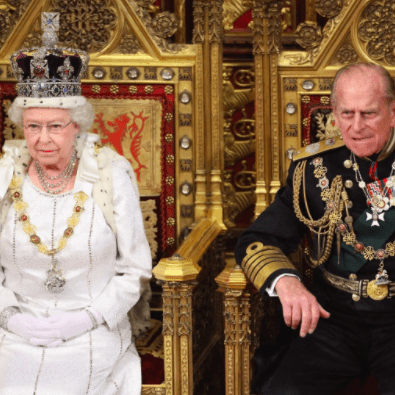Prince Philip, Queen Elizabeth II’s husband and the longest-serving consort of any British monarch, has died at age 99.
A statement posted on the royal family’s website Friday morning said: “It is with deep sorrow that Her Majesty The Queen announces the death of her beloved husband, His Royal Highness The Prince Philip, Duke of Edinburgh.
“His Royal Highness passed away peacefully this morning at Windsor Castle. Further announcements will made in due course. The Royal Family join with people around the world in mourning his loss.”
His death was met with a flood of tributes from across Britain and the world. In accordance with tradition, a framed notice containing the news was also placed on the railings outside Buckingham Palace.
Philip spent 65 years supporting the queen, retiring from his public role in 2017 and staying largely out of the view since. In his active years, he helped set a new course for the monarchy, championing Britain itself, as well as environmental causes, science and technology.
His passing comes as the royal family confronts new challenges, most recently the intense publicity that followed the departure of Prince Harry and Meghan, the Duchess of Sussex, from both the United Kingdom and official royal duties.
Philip’s relationship with Elizabeth began as a story of young love.
“We behave as though we had belonged to each other for years,” then-Princess Elizabeth wrote in a letter to her parents shortly after they married.
Over the years, the queen acknowledged Philip’s deep influence on her, calling him her “strength and stay” in a speech on their 50th wedding anniversary in 1997.
“I, and his whole family, and this and many other countries, owe him a debt greater than he would ever claim or we shall ever know,” she said at the time.
The intensely private prince will likely be remembered for his early efforts to help modernize the royal family’s image during a time of great change for Britain and the world, especially at the outset of Elizabeth’s reign in 1952. He also developed a reputation for the occasional brusque comment and crass, if not racist, jokes.
“The queen inherited from her father a model of monarchy that was very hands off, old-fashioned and slightly invisible,” said Sarah Gristwood, a historian and the author of “Elizabeth: The Queen and the Crown.”


